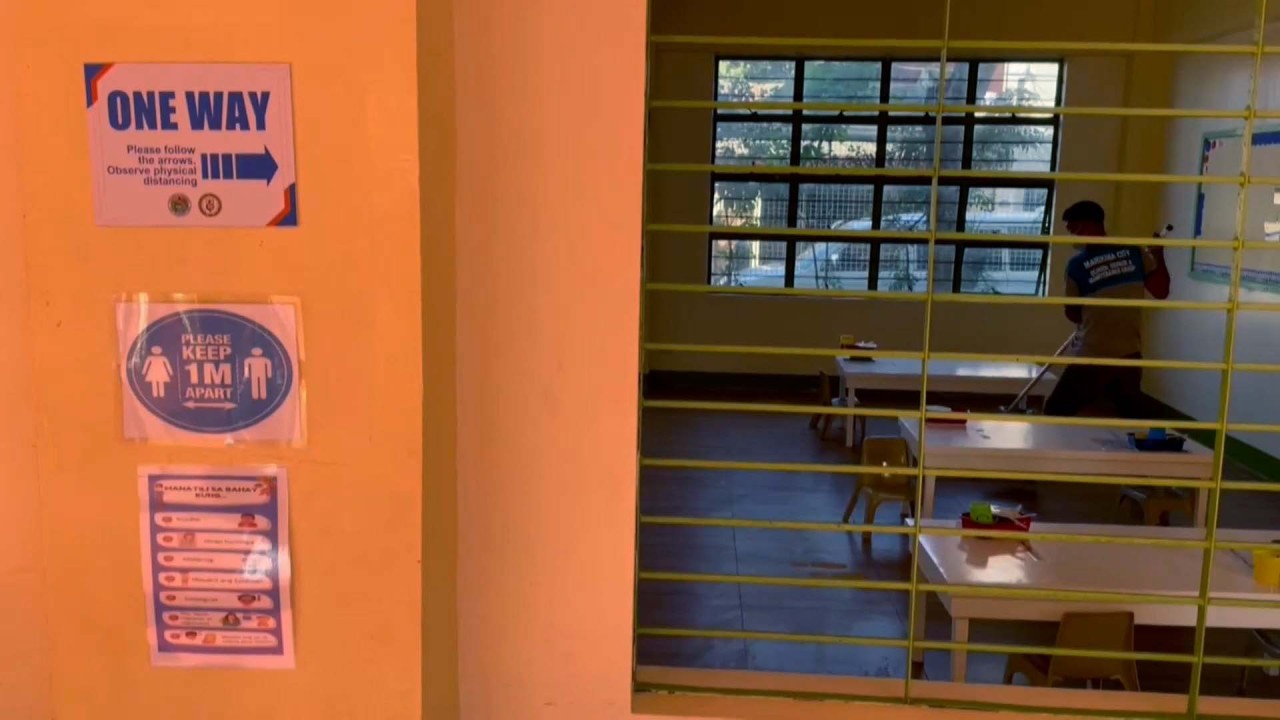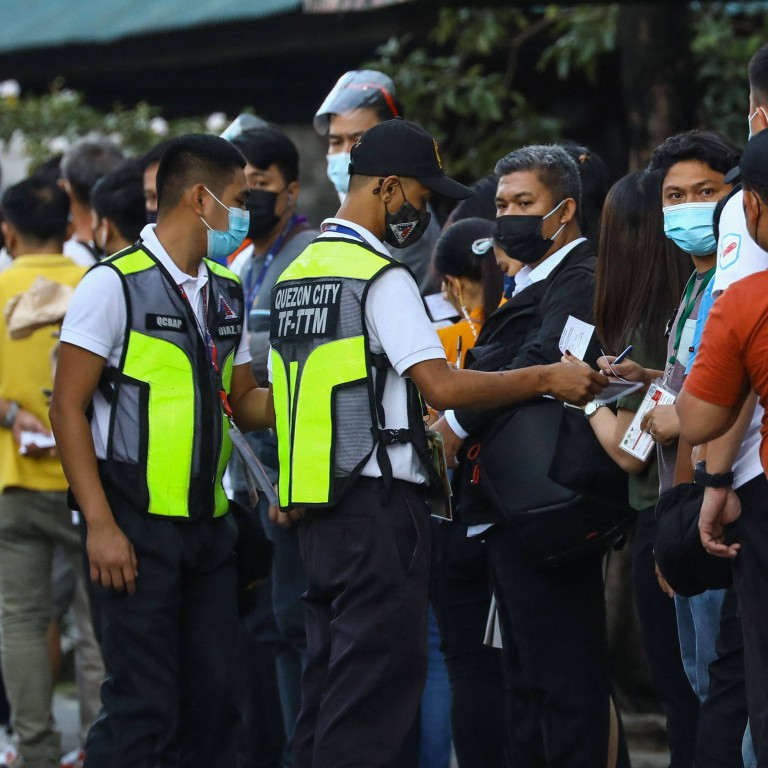
Philippines: ‘No vax no ride’ scheme banning unvaccinated from public transport sparks confusion
- Plan, launched on Monday in Manila area, accused of being ‘draconian’; government tries to clarify new rules while mentioning ‘reason to apologise’
- There is some vaccine hesitancy in nation but tens of millions of vaccine doses have still not been used because of logistical issues
Just two days after the Philippines claimed the successful launch of its “no vax no ride” plan in the capital, the “draconian and stupid” scheme has come under fire from critics and a cabinet member has begun talking about a public apology.
The scheme, which began on Monday, stops Metro Manila commuters who are not fully vaccinated from using public transport. They have to show proof of their shots before they can board trains, buses and jeeps.
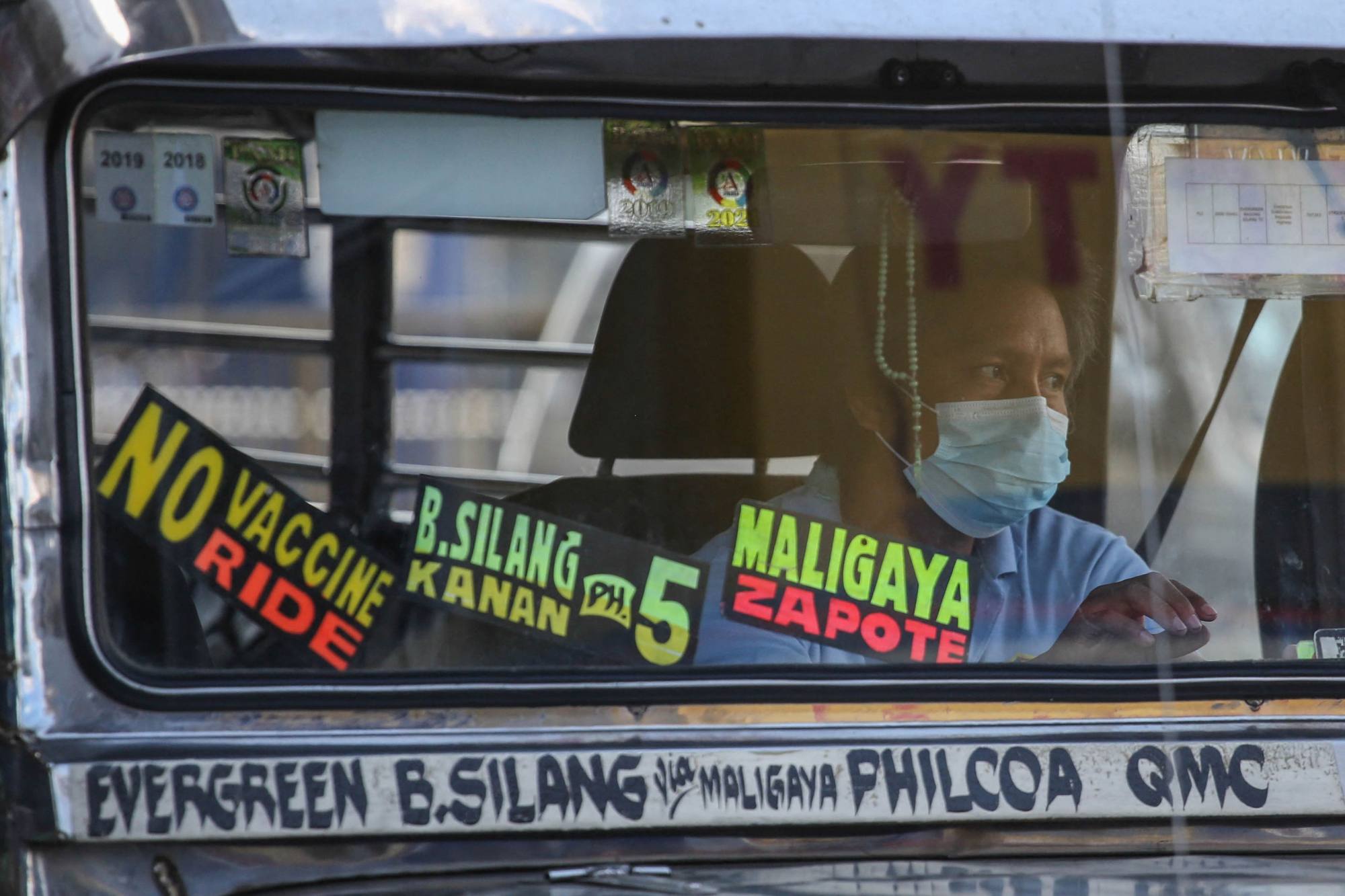
The region has 12.8 million people and accounts for a third of the country’s economic output.
Even on its launch day the new plan was undermined when the country’s chief public lawyer Persida Acosta said she is unvaccinated and does not believe in vaccines, while others were distraught at what they perceived as unfairness.
Don’t browbeat parents into vaccinating their kids. Persuade them
A young woman interviewed by GMA News broke down in tears as she explained she needed to attend a medical examination that was a requirement for getting a job, but had only received one jab.
“It’s not my fault if my second dose is in February”
“It’s not my fault if my second dose is in February,” she said, echoing views expressed by many of the 59 million Filipinos who had received only one dose as of Wednesday. “This is so exhausting,” she added.
As of Tuesday, the vaccination rate was slightly over 50 per cent, although that figure was the government’s target for the end of 2021.
While vaccine hesitancy is partly to blame, there is also government ineptitude, with a lack of vaccines, a shortage of syringes and logistical issues in distribution.
More than 2 in 5 people tested for Covid-19 in the Philippines have it
However, based on Department of Health statistics it had only managed to administer 120 million doses by Tuesday, with tens of millions of doses in transit or in local health offices or warehouses, waiting to be used.
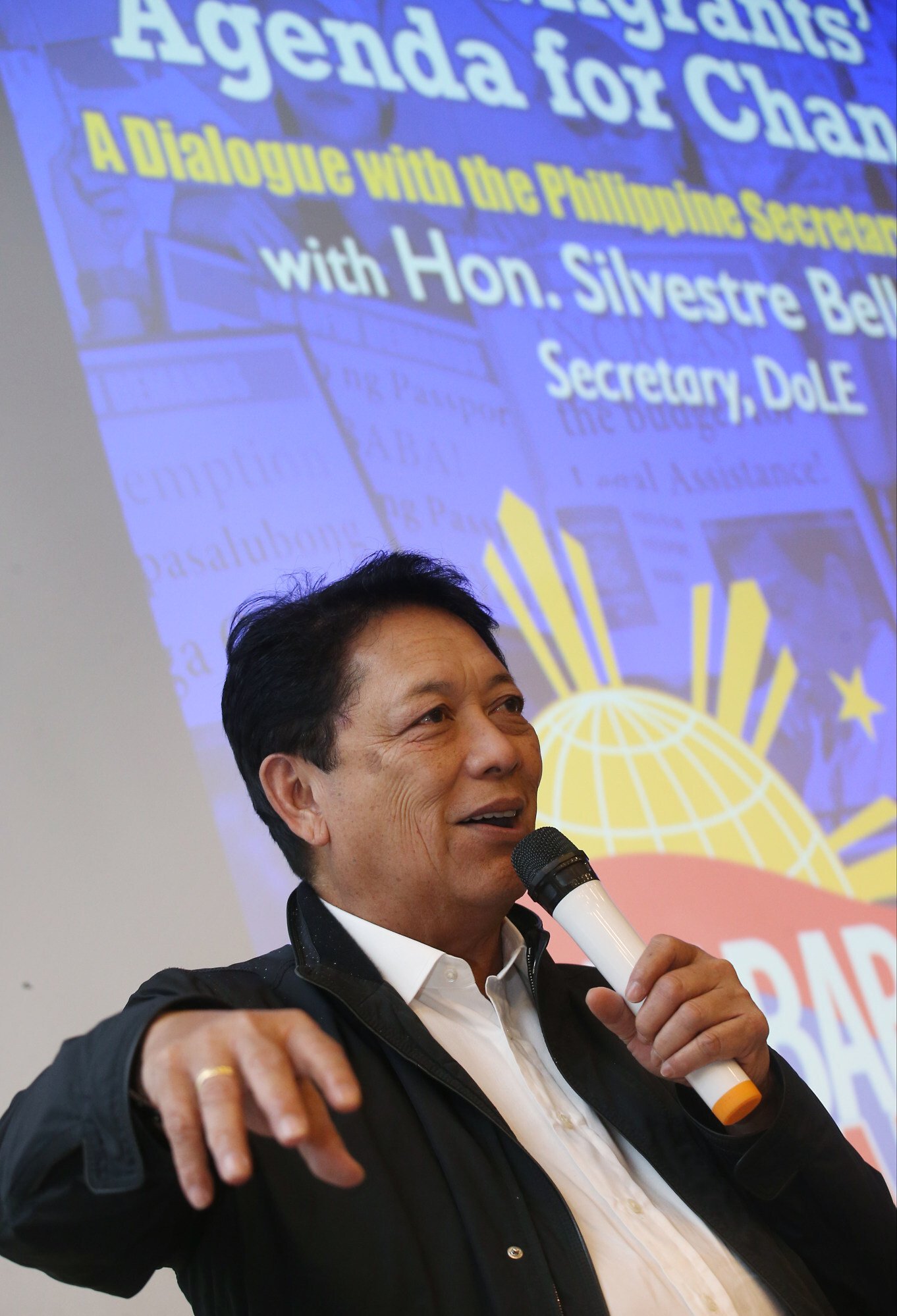
After a video of the upset woman began circulating on social media, labour secretary Silvestre Bello clarified on Tuesday that the “no vax no ride” policy did not apply to workers, causing confusion about who was covered. He said unvaccinated workers had “always been exempt” from the policy.
“Our workers are exempted because they are rendering essential services,” he said.

On Wednesday, Bello told CNN “there is reason for us to apologise to the public” and there was a need for a “massive information campaign”.
Critics pointed out that officials like Acosta, whose office is in charge of giving out free legal aid to those who cannot afford it, would not be affected by the transport restrictions as they are taken around in chauffeured vehicles.
Acosta herself criticised the restrictions, telling local news site ABS-CBN News that the policy was “highly unconstitutional” because the law does not require vaccination cards for “any transactions”.
Famous Covid-19 rulebreakers: royals, leaders and reality TV stars
Senate minority leader Franklin Drilon said on Wednesday that “until (Acosta) gets vaccinated, she should be barred from reporting to work” because what she is doing and saying “is like a slap on the government. I hope it is not deliberate but Acosta’s recent statements can fuel vaccine hesitancy that we are trying to address”.
The government-run Philippine News Agency declared the plan “successful” on Monday, quoting a Transport Department official as saying that a total of 1,749 commuters were not allowed to board trains at several rail stations because they had no vaccination documents.
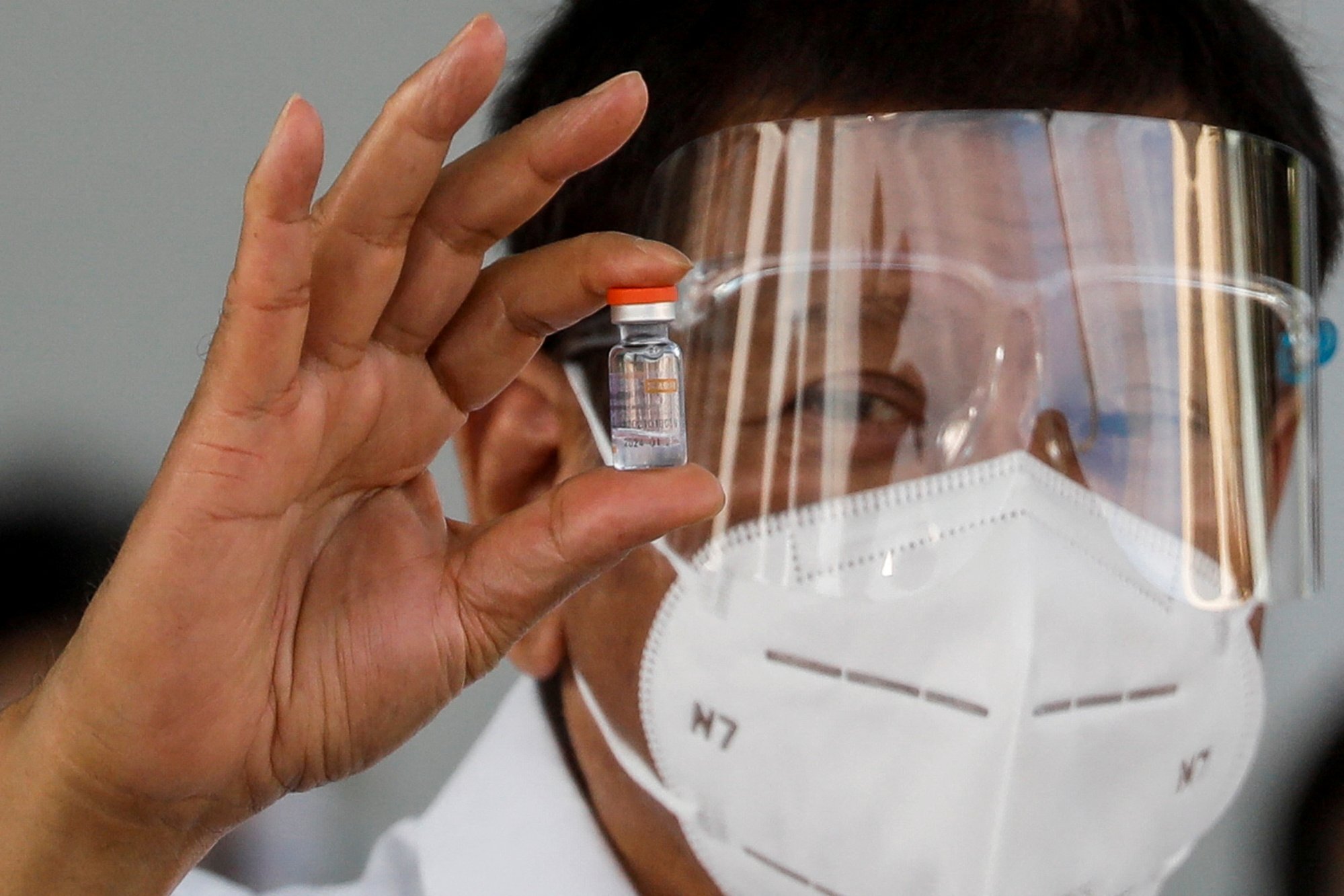
Violators are supposed to be apprehended, according to an announcement by President Rodrigo Duterte earlier this month. But the transport official said because it was the first day, those found without documents were given warnings instead.
Vice presidential candidate Walden Bello (no relation to the labour secretary) called the policy “draconian and stupid”. Opposition senator Risa Hontiveros said the policy could be abused because there are different interpretations and how to implement it was not clear.
“Let’s put some heart and humanity in our policies” said R J Naguit, a medical doctor running this May under the Akbayan Partylist, a left-wing group of lawmakers.
Inhaled Covid-19 booster ‘more effective than third dose of Sinovac’
On Tuesday, a columnist at the Inquirer newspaper asked if Duterte would at least fire Acosta, whose workplace is located in Quezon City within the Metro Manila area.
The local government there recently ruled that unvaccinated persons could go out to work, seek medical attention or buy food provided they take bimonthly tests. Establishments that accept unvaccinated patrons are subject to fines.

Candidates in the running for May’s presidential polls also spoke up about the new policy. Ferdinand “Bongbong” Marcos Jnr’s spokesman Vic Rodriguez said it “is certainly founded on sufficient valuable data that are available in its possession”.
His closest political rival, Vice-President Leni Robredo, took the opposite tack, saying that while rolling out vaccines to workers and the poor “you don’t need to use scare tactics. You just need to patiently educate people, make sure vaccines are available to them, and incentivise them”.
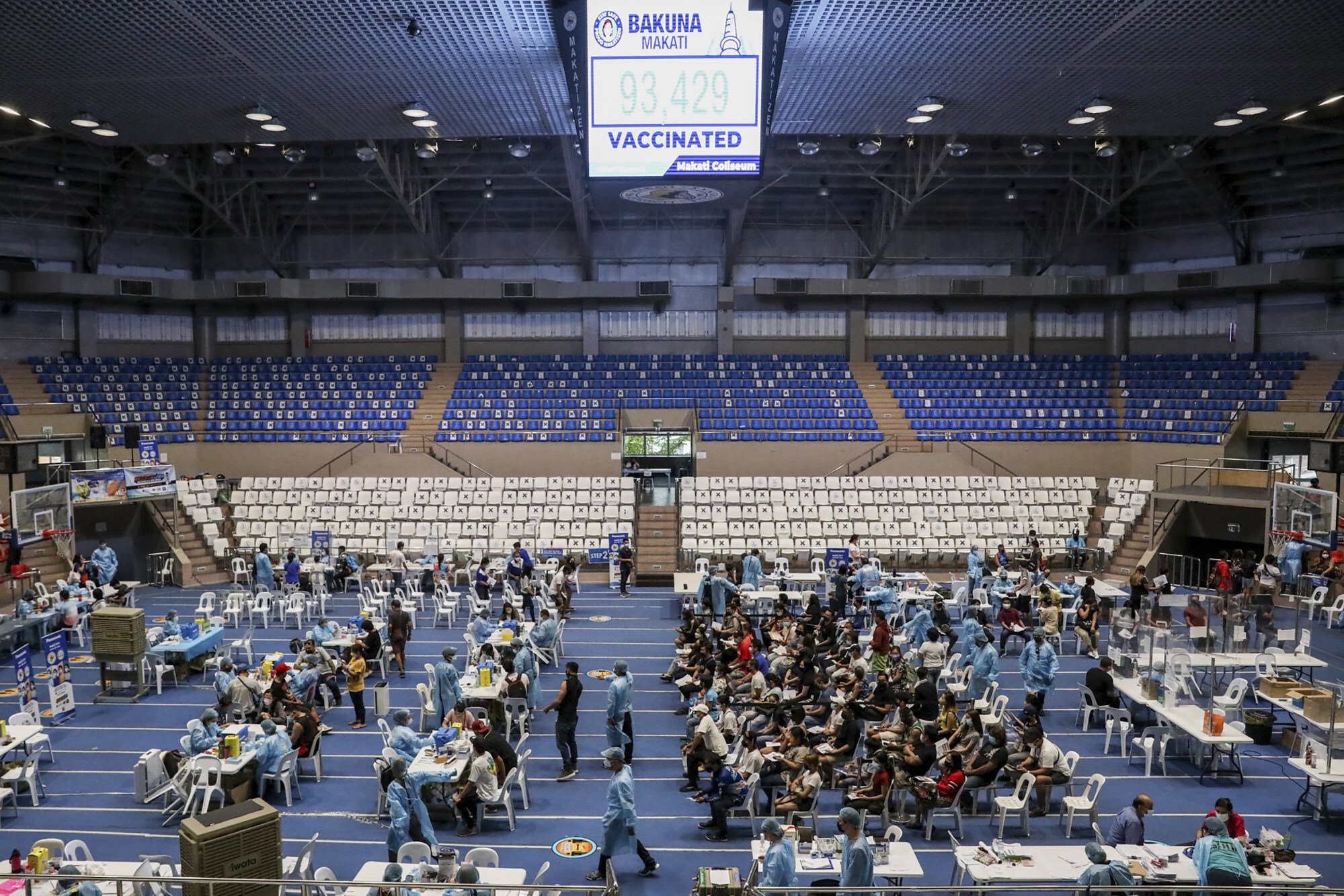
There have also been questions raised on how the drivers of ‘jeepneys’, vehicles which pick up and drop off commuters anywhere on route, are supposed to check the documents of their passengers.
The authorities have not relaxed the rules, though. Instead they have doubled down, announcing they will deploy “mystery passengers”, police in disguise who check drivers’ and operators’ compliance.
Naguit called this “a waste” of energy and funds that could have been channelled to pay local health workers and Covid-19 testing.
Since the first lockdown in 2020, police have shot and killed at least two alleged violators.



